Salvaging the season: Harper’s Speech team adapts to online competitions during pandemic year
Although limited to a screen, Sophomore Paula Solarska says she has made the most out of her COVID-19 experience–and that Harper’s Speech and Debate team has been the driving force behind that. From working as a barista at Starbucks, managing Harper’s Radio Station, and having a full school schedule, the 20-year-old has found an escape through Speech and Debate.
“It boosted my morale and made me feel that things were going to get better and that I could handle this,” Solarska described.
Harper’s Speech and Debate team, also known as “forensics,” aids students of all skill levels in the opportunity to become successful communicators, competitors, and people.
For the past twenty-one years, Harper’s Speech and Debate has been one of the top 10 most competitive community college teams in the country. And although they were faced with many hardships because of COVID-19, they still managed to win state and regional titles this spring 2021 season.
The team has won 75 individual awards, finished 3rd at their state tournament, and earned a silver medal at their regional tournament. The team’s head coach, Jeff Przybylo was awarded the 2021 Dennis Ross award, which recognizes an Illinois coach for their contributions to Illinois forensics.
“I was at my computer for two days creating videos of the awards and making those files,” Przybylo explained. “I was working on the videos and the Dennis Ross award came up and I started watching it to edit it and I was like ‘holy shit I won this award!’”
Last spring the team had plans on attending nationals in San Diego, California–the peak of the speech season– but the nationwide lockdown caused nationals to be canceled. After this, the spring season faded out and no one knew how to proceed. Many were disappointed and crushed.
“A lot of our team fell apart, unfortunately. A couple of people didn’t come back,” Solarska explained.
Even though spirits were low from the canceled nationals, last summer coaches Jeff Przybylo, Margaret Bilos, and William Lucio were able to strategize how to successfully get the team back up and running in a remote environment. Word was out: the new 2020-2021 season would be all online tournaments.
To combat the many technical difficulties that arose, Harper gave team members IPads, microphones, and ring lights to ensure the team was ready to perform and compete virtually.
During a normal tournament season, the team would wake up at the crack of dawn to travel to colleges throughout Illinois and close states. Virtual tournaments have afforded students a lot more flexibility in terms of participation–an unexpected silver lining of the season.
“I can go to as many tournaments as I want,’ team member Ruth Lim commented. “I don’t have to travel, so even if the team’s not going to a particular tournament, I can still go to an extra one.”
Solarska added that there have been other welcomed benefits to the virtual season.
“We used to wake up around 4 a.m. to get ready, but now I just wake up, get ready, and hop on Discord to start preparing for the tournament,” Solarska explained.
At 8 a.m. the team logs into their Discord server to warm up with each other. Discord is an instant messaging and video platform made for group chats and other online interaction.
They stretch, practice, do tongue twisters, run through the tournament schedule, and of course hype each other up for their performances.
By the time they warm-up, which is right before the start of the tournament at 9 a.m. the tournament software sends each team member an email with a link to the meeting rooms where they will perform and compete. Each meeting room is a separate category and typically holds six students and each student gets to perform for up to 10 minutes.
The competitors get 45-minute breaks between rounds to hang out with each other and Harper even provides each team member a $20 GrubHub gift card for lunch every tournament.
“There was more student interaction, which made a big difference honestly,” Lim described. “And it helped make it feel like I was actually competing against people.”
While this season has looked and felt a lot different, it appears that the team’s competitive spirit is still the same.
“Through all of this, we’ve been able to make something great,” Solarska described. “We’ve been able to make something still work and function even though we can’t physically be together and that is inspiring.”
Przybylo added that many positive outcomes from this high-tech season–things like online coaching– may be implemented in future seasons for Speech and Debate, even when things return to in-person.
“I wouldn’t mind a couple of online tournaments every year and then mostly live tournaments, it allows you to practice online,” another speech team member, Keely McEnery added.
Harper’s Speech team also seemed to agree that regardless of it being a quarantined season, there is one thing that has remained the same as the last 25 years: the team bond. They work together from August until April, building, practicing, competing, and supporting one another.
“Through the ups and downs of being in a pandemic, speech was always there for me and I always had a family to lean on,” Solarska concluded with a nod and a smile.

Micaela plans to pursue a major in sociology and hopes to teach the subject at a college level in her future. She also is a lover of art; she is a dancer...

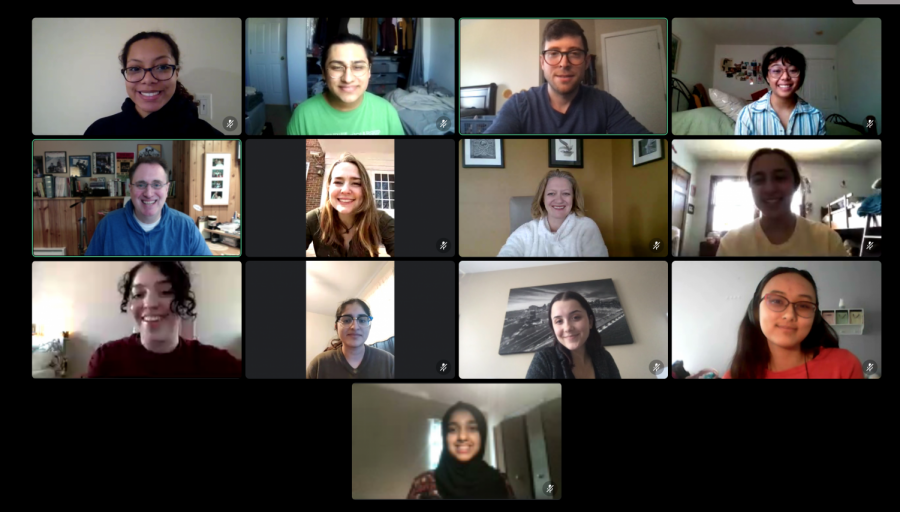

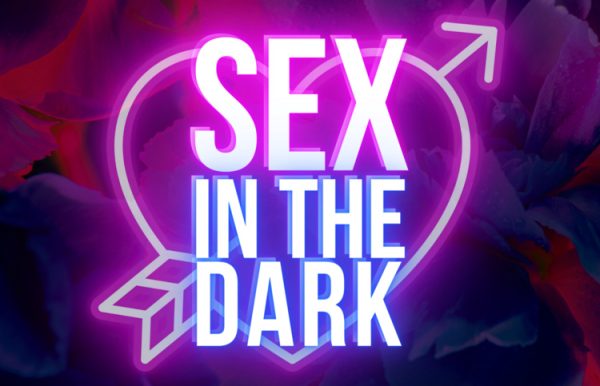
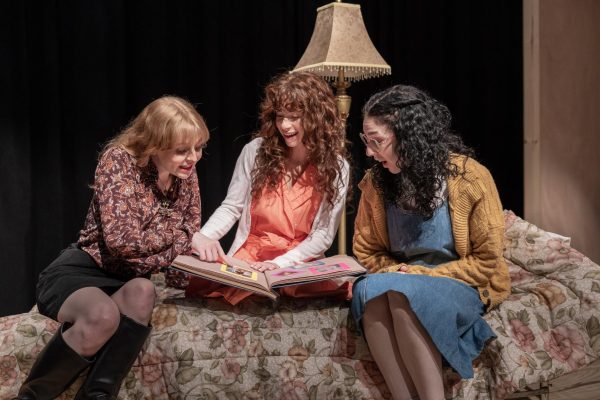
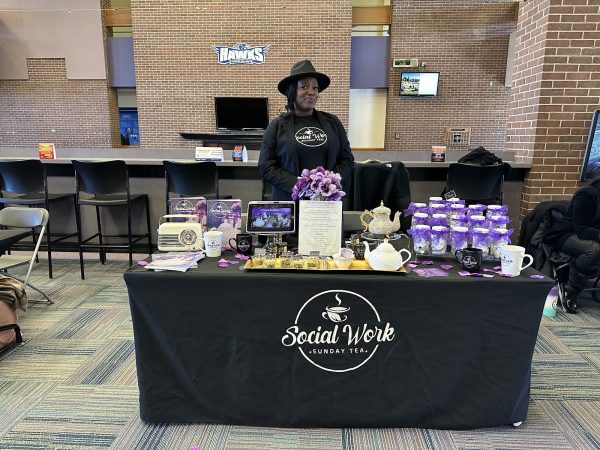
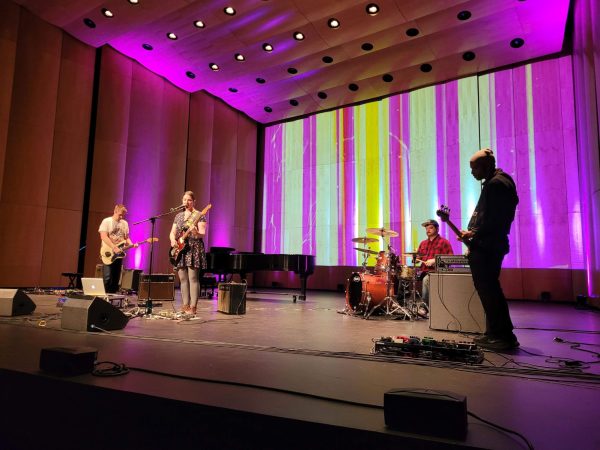
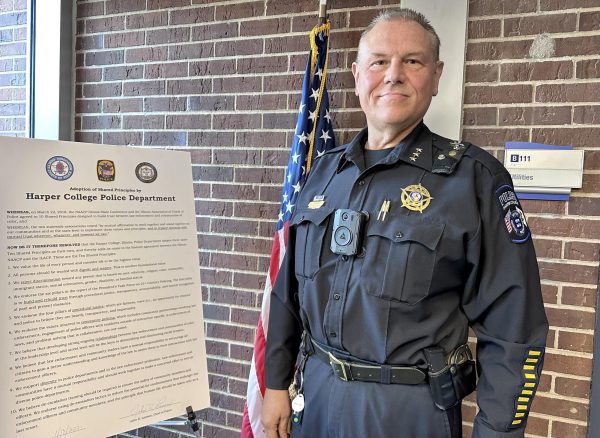

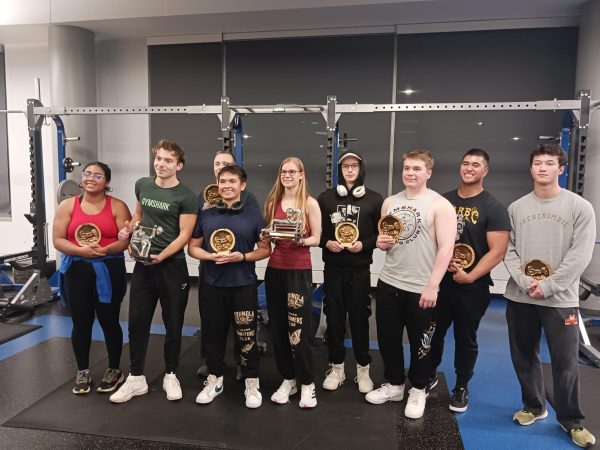

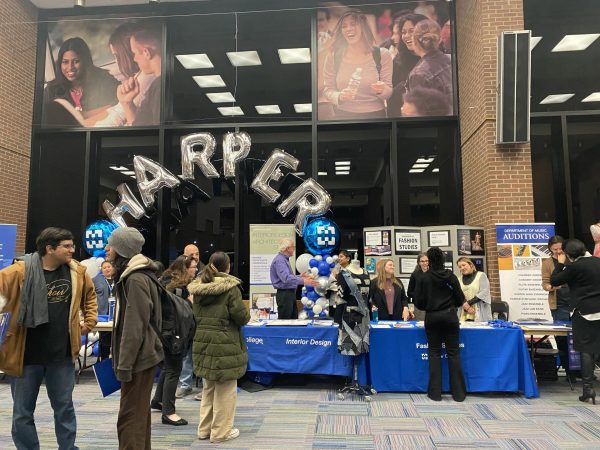
Jeff Przybylo • Apr 16, 2021 at 9:19 am
Great story! Thanks to the Harbinger for covering these amazing students.